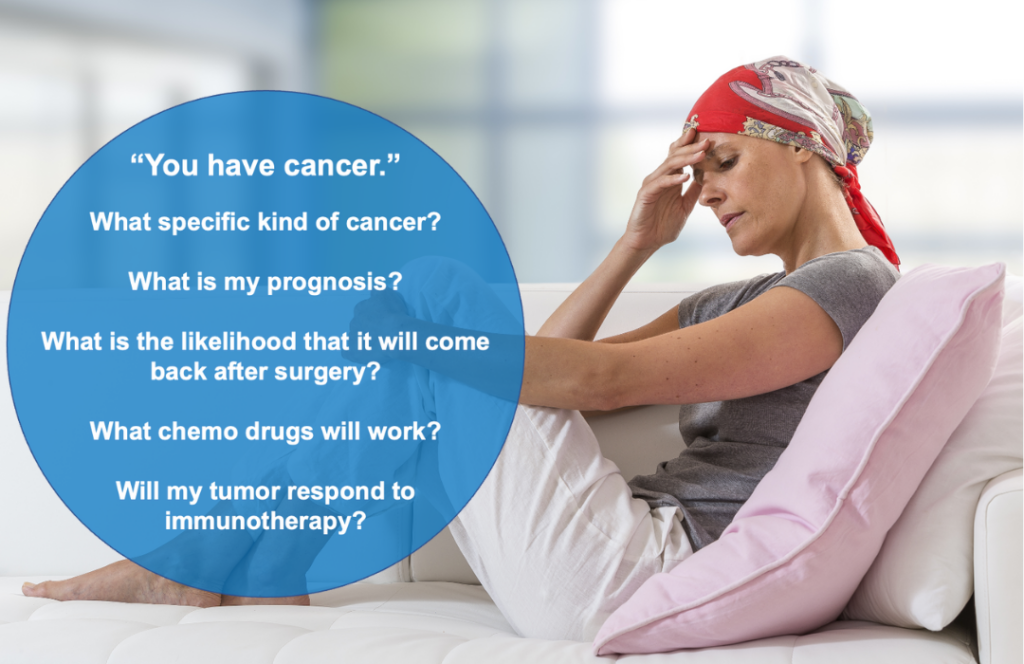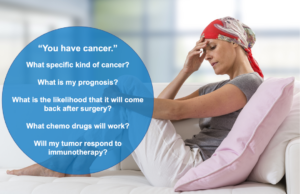Understanding the Need for Precision Oncology
Imagine you are a cancer patient. You just found out that you have cancer. Understandably, the news is devastating. You’re scared. And when you are scared, you search for answers. Perhaps the first questions that come to mind: How did this happen? What caused it? And then come the existential questions.
Ultimately, your questions become more focussed on the current situation. You want to know what kind of cancer you have. You want to understand how far it has progressed. (You want to know the stage.) You want to know what treatments are ahead of you. What are the best treatments for your particular situation? And you want to understand whether this is curable. If it is not curable, you want to know how long you may have to live.
Ideally, you want answers that are specific to your situation. You’re not just a statistic; you’re an individual. Indeed, your doctor sees you as an individual, but only has data from large trials studying cancers with diverse biological properties. There are limited tools available to determine how quickly your cancer will grow, to understand its capability to spread, and to predict what treatments will work best.

The uncertainty means that the doctor must make an educated guess on the best treatment for you, based on current evidence. For you, that means there is no guarantee that a particular treatment will benefit you. You must decide whether to accept a treatment with risks and side effects, hoping that you will be one of the lucky ones who will respond to the treatment. For the health care system, that means that billions are wasted on the wrong treatments in the wrong patients.
But what if there were a better way to select and deliver the treatment, a test that informed the oncologist and the patient on the best treatment, or a drug customized for a particular person? That’s where precision oncology comes in. Precision oncology involves personalizing cancer care.



